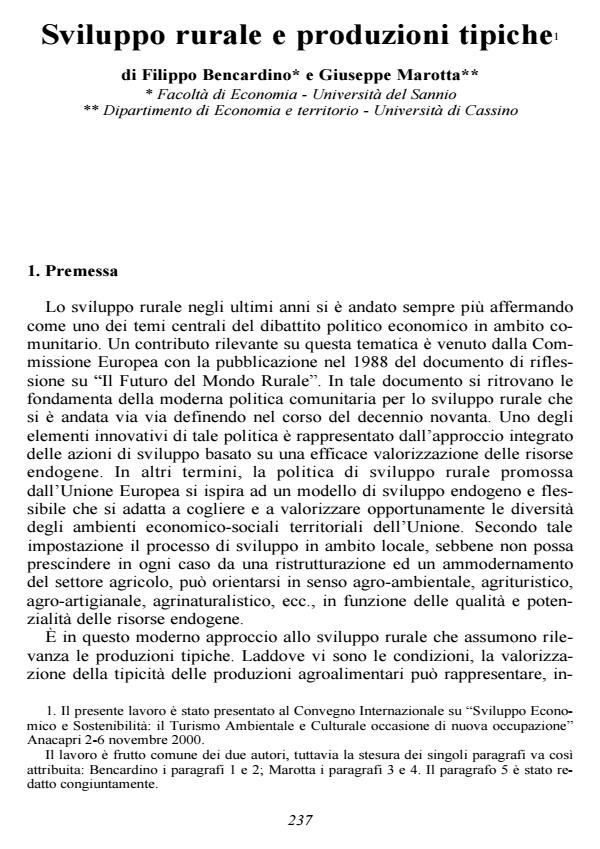Sviluppo rurale e produzioni tipiche
Journal title ECONOMIA AGRO-ALIMENTARE
Author/s Filippo Bencardino, Giuseppe Marotta
Publishing Year 1 Issue 2000/3
Language Italian Pages 17 P. File size 44 KB
DOI
DOI is like a bar code for intellectual property: to have more infomation
click here
Below, you can see the article first page
If you want to buy this article in PDF format, you can do it, following the instructions to buy download credits

FrancoAngeli is member of Publishers International Linking Association, Inc (PILA), a not-for-profit association which run the CrossRef service enabling links to and from online scholarly content.
The rural development, in the last years, has become one of the central themes of the political economic debate in EU. A remarkable contribution, on this issue, was made by the European Commission with the publication, in the 1988, of the document on The Future of the Rural World. In this document it is possible to find the foundations of the new Common Policy for the rural development that has been defining in the course of the last decade. One of the innovative elements has represented by the integrated development approach, based on a valorisation of the endogenous resources. In other words, the EU rural development policy is inspired to a model of endogenous and flexible development to gather and to valorise the differences of the social-economic and territorial environments of the Union. According to this formulation, the development process in a local context, although could not avoid a restructuring of the agricultural sector, can orient itself in environmental sense, agri-turistic, agri-handicraft, agri-naturalistic, etc., to valorise the quality and potentiality of the endogenous resources. In this modern approach of the rural development, the typical productions become particularly important. Where it is possible, in fact, the valorisation of the typical productions could represent a good tool for the local development. The EU Commission in his document affirmed: "the maintenance and the promotion of quality products could constitute an important element (of development) above all in the disadvantaged or isolated areas"6. Many empirical analysis have, however, underlined that the typical productions valorisation requires an organisational structure and a modern entrepreneurial culture of which, almost always, the rural areas result particularly poor. That makes the binomial "Rural Development - Typical Productions" rather complex and problematic to change and become a concrete and effective development factor.
Filippo Bencardino, Giuseppe Marotta, Sviluppo rurale e produzioni tipiche in "ECONOMIA AGRO-ALIMENTARE" 3/2000, pp , DOI: